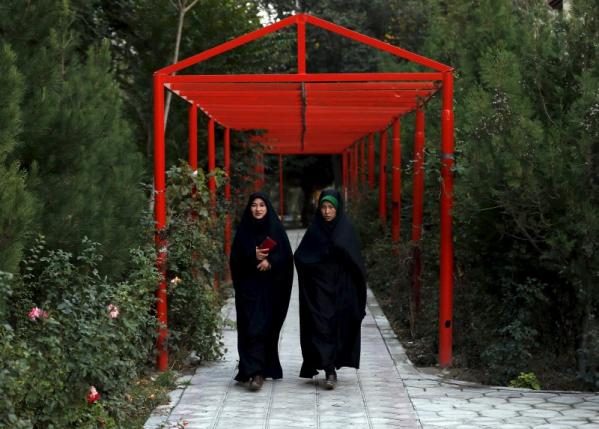
Interactions with local people dispelled certain notions prevalent in Pakistan about northern parts of Afghanistan.
The enigma of Pak-Afghan relations
Incidentally, this correspondent encountered just one student among a group as large as 80 students at the university had lived in Peshawar as a refugee, but everyone else knew Pakistan very well and were aware of Islamabad’s policies about Afghanistan.
Unlike Afghan government leaders, students presented a balanced approach towards Pakistan; they did not just confine themselves to leveling allegations against Pakistan but they were thankful to Pakistan for building the university’s Liaquat Ali Khan Engineering Faculty. The block was built with Pakistani assistance to Afghanistan amounting to more than $18 million.
“I and my fellow students are grateful to Pakistan for contributing to building this university in Balkh province. But, this is not enough; we need help to improve information technology and other departments too,” Mohammed Humayoon, a student studying Uzbek language and arts said during a question-answer session.
Highlighting “great difficulties faced by (the Afghan) people in acquiring Pakistani visas,” he urged the governments of the two countries to improve transit trade, adding that goods from Pakistan could be used to bolster links with the Balkh province.
The interaction with students was part of an unofficial track-II dialogue titled ‘Beyond Boundaries’ during which students frankly discussed various issues with Pakistani and Afghan participants.
Appreciating Pakistan for helping Afghan refugees for nearly 40 years, Farzana, a student of the engineering department, said: “We are surprised at the recent treatment of Sharbat Gula in Pakistan. Can you explain why this was done?”
Rebuilding relations with Afghanistan
Pakistan deported Sharbat Gula, the green-eyed Afghan poster girl of yesteryear, after keeping her for 15 days in jail on charges of possessing fake identity papers.
Nagina Akhtar, who studies in the political science department, said that she firmly believed in improving people-to-people contacts.
Zakir Adeeb, a student of the university’s engineering department, said: “The problem lies with both governments. We, the people, want to improve communication and education in general. We are grateful to Pakistan for providing help to this university.” He also asked about Pakistan’s plans regarding peace-building and the future of Afghanistan.
Zikarullah, a student of the political science department, asked: “We are optimistic about improving relations between the two countries. But, I would like to ask … what is the Pakistan government doing in limiting and countering (the influence of) radical madressahs involved in terrorism?”
A female student, Neela from the English literature department, asked about opportunities available in Pakistan, especially for women students from universities in Mazar-e-Sharif.
Another female student, Nagina, who is studying law and political science, said: “The core problem affecting Pakistan and Afghanistan is political.”
Published in The Express Tribune, December 19th, 2016.
1724657897-0/Untitled-design-(2)1724657897-0-405x300.webp)
















COMMENTS (2)
Comments are moderated and generally will be posted if they are on-topic and not abusive.
For more information, please see our Comments FAQ